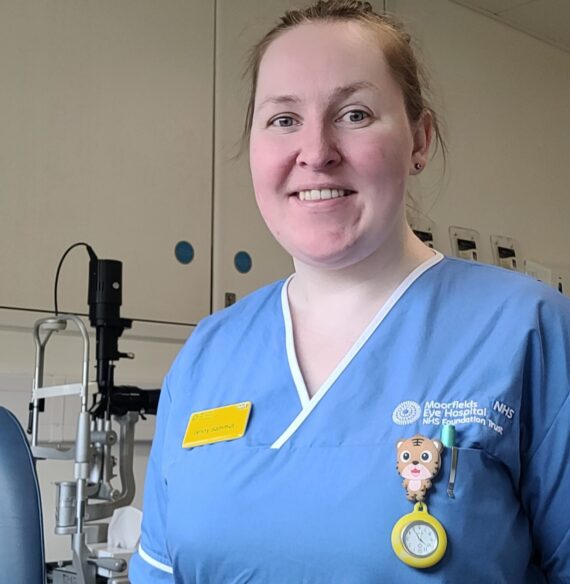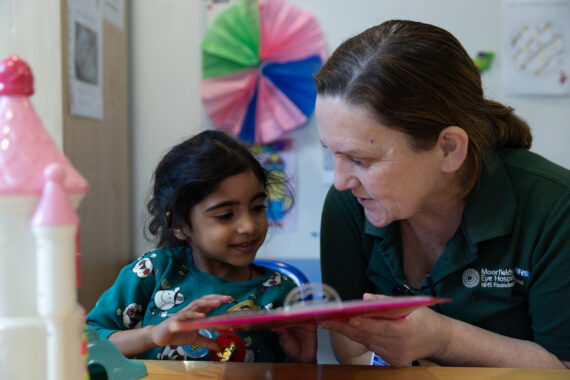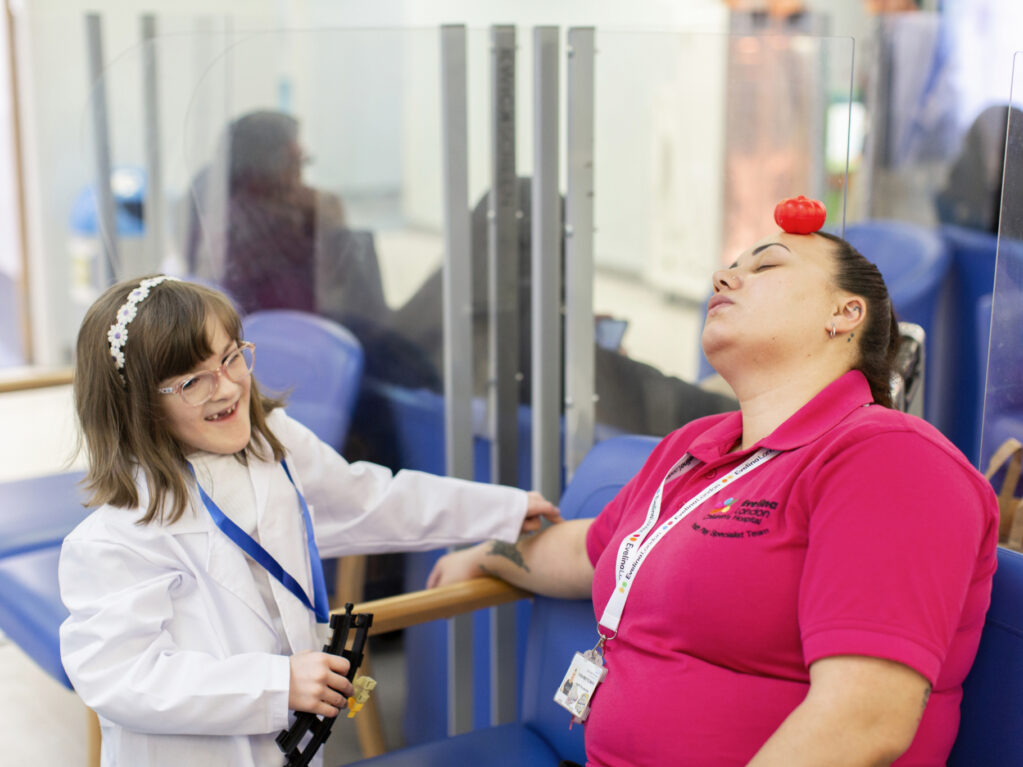A staff nurse at Moorfields Eye Hospital, who works across its A&E, inpatient and outpatient departments, shares how play - often in the simplest forms - is quietly working magic on young patients and their parents alike and has the power to 'change the tone' of care.

For Jenny Anita Sammut, (pictured left) a staff nurse at Moorfields Eye Hospital in London, the significance of play in healthcare couldn’t be clearer.
“When children arrive, they’re often scared. They don’t really know why they’re here, and that fear can build fast. But if you bring in play, it changes everything. It helps them feel safe, comfortable and distracted in the best way,” said Jenny.
She says she’s seen it countless times. “A child comes in, nervous about having an eye surgery but after it's over [and they are well enough] they’ll head straight to the play area. They draw, cut out paper glasses, or watch bubbles drift through the air and they come back next time and remember the fun, not the fear,” she says. “They think, ‘after I saw the nurses and doctors, I got to go and play’. It helps them come back with confidence.”
But the power of play isn’t limited to before and after appointments. It can be crucial during procedures too. One example she shares involves checking eye pressure - a process that requires a child to stare straight ahead while a small probe touches the eye. It’s quick, but uncomfortable, and incredibly difficult without stillness.

“This is where the play team are incredible,” she says. “They’ll stand just behind me and do something silly to keep the child’s attention. Maybe they'll start a staring competition. Suddenly the child’s not thinking about the probe or the discomfort - they’re focused on something fun. That kind of distraction is gold.”

It’s not just the children who benefit. Parents, too, find comfort in the presence of the play team, she said. “You can see them breathe out,” she says. “They know their child is in good hands, and they don’t have to carry it all themselves. It gives them space to relax, even just a little.
“Health play professionals don't just provide play - they inspire others to join in. I’ve seen doctors walk down the corridor blowing bubbles, playing dress-up or dancing with patients just because the play team led the way. It has this ripple effect. Everyone becomes part of that playful environment.”
Jenny recalls a common moment on the ward. “Instead of saying, ‘Let’s take your blood pressure,’ you say, ‘Let’s see how strong you are!’ That energy - light-hearted, kind, human - it really stays with a child.”
That ripple is spreading even further, thanks to training offered by Starlight to healthcare professionals who are not play specialists. “It’s such a smart idea,” she says. “Because of course, not every child can have one-to-one support all the time. But if nurses and other medical staff can learn how to use play techniques, it changes the whole tone of care.”
